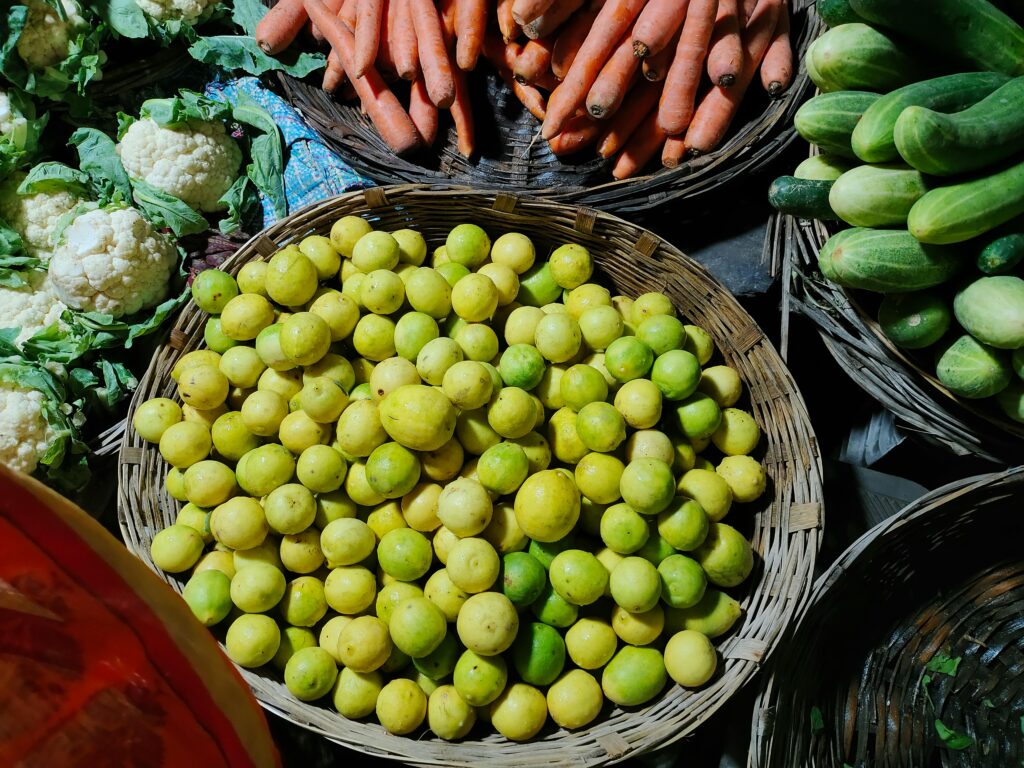“Eco-Friendly Groceries: How to Make Sustainable Choices in Grocery Shopping”
In this day and age, being ecologically cognizant is a higher priority than at any other time. One method for adding to a better planet is by going with eco-accommodating decisions when you search for food. Here is a direct aide on the most proficient method to settle on supportable decisions during your shopping for food

Pick Neighborhood Items
Purchasing neighborhood items decreases the carbon impression related with shipping merchandise over significant distances. Search for natural products, vegetables, and different things that are developed or created in your district. Nearby items frequently accompany less bundling and can be fresher than those that have gone far.
Settle on Natural Food sources
Natural food varieties are developed without engineered pesticides and composts. This is better for the climate and can be better for you. Search for natural marks on natural products, vegetables, and different items. Natural cultivating rehearses assist with keeping up with soil wellbeing and diminish contamination.
Present to Your Own Sacks
Utilizing reusable shopping sacks rather than single-utilize plastic packs helps cut down on plastic waste. Keep a couple of reusable packs in your vehicle or by the entryway so you remember them when you go out on the town to shop.
Keep away from Over-Bundled Items
Attempt to keep away from items with exorbitant bundling. Pick things that come in negligible or recyclable bundling. For instance, purchase free products of the soil rather than those enveloped by plastic.
Purchase in Mass
Buying things in mass can diminish bundling waste and set aside you cash. Select mass receptacles for staples like grains, nuts, and beans. Simply make certain to purchase just what you can use to stay away from food squander.
Select Items with Eco-Accommodating Confirmation
Search for items with eco-accommodating confirmations like Fair Exchange, Rainforest Collusion, or Energy Star. These names demonstrate that the items meet specific ecological and moral norms.
Support Maintainable Brands
Many brands are focused on supportability. Exploration and backing organizations that focus on natural obligation in their obtaining and creation processes. Brands that emphasis on maintainability frequently use eco-accommodating bundling and fair work rehearses.
Plan Your Feasts
Arranging your dinners assists you with purchasing just what you really want, diminishing the possibilities of food squander. Make a shopping list in light of your dinner plan and stick to it to stay away from drive buys that could prompt squandered food.
Fertilizer Food Scraps
Rather than discarding food scraps, consider beginning a fertilizer receptacle. Fertilizing the soil kitchen squander like organic product strips and vegetable pieces diminishes how much waste shipped off landfills and gives significant supplements to your nursery.
Teach Yourself As well as other people
The more you know about eco-accommodating decisions, the better choices you can make. Remain informed about feasible practices and offer your insight with loved ones to assist with spreading mindfulness.
Settling on eco-accommodating decisions while looking for everyday food items doesn’t need to be confounded. By following these basic hints, you can lessen your natural effect and backing a more maintainable future.
FAQs About “Eco-Friendly Groceries: How to Make Sustainable Choices in Your Grocery Shopping”
What are eco-friendly groceries?
Eco-friendly groceries are products that are produced with minimal environmental impact. This includes items that are locally sourced, organic, or packaged in recyclable or biodegradable m
Why should I buy organic foods?
Organic foods are grown without synthetic pesticides and fertilizers, which is better for the environment and often healthier for you. Organic farming also supports soil health and reduces pollution.
How can I reduce plastic waste when shopping for groceries?
You can reduce plastic waste by bringing your own reusable bags, choosing products with minimal packaging, and avoiding single-use plastic items. Opt for bulk products when possible to cut down on packaging.
What should I look for on labels to ensure a product is eco-friendly?
Look for certifications and labels such as Organic, Fair Trade, Rainforest Alliance, or Energy Star. These indicate that the product meets specific environmental and ethical standards.
How can meal planning help with sustainability?
Meal planning helps you buy only what you need, which reduces food waste. By making a shopping list based on your meal plan, you can avoid over-purchasing and use ingredients more efficiently.
Post Comment